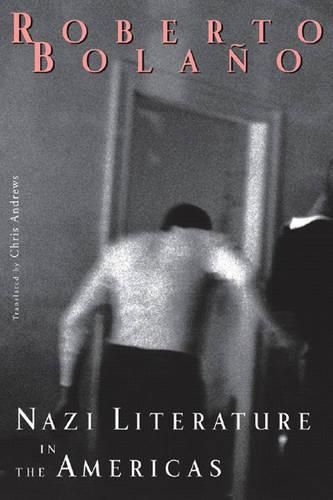Readings Newsletter
Become a Readings Member to make your shopping experience even easier.
Sign in or sign up for free!
You’re not far away from qualifying for FREE standard shipping within Australia
You’ve qualified for FREE standard shipping within Australia
The cart is loading…






A tour de force of black humor and imaginary erudition, Nazi Literature in the Americas presents itself as a biographical dictionary of writers who espoused extreme right-wing ideologies in the twentieth and twenty-first centuries. Composed of short biographies about imaginary writers from Argentina, Brazil, Chile, Cuba, Columbia, Peru, Uruguay, Venezuela, and the USA, Nazi Literature in the Americas includes descriptions of the writers’ works, cross references, a bibliography, and also an epilogue ( For Monsters ). All the writers are carefully and credibly situated in real literary worlds. There are fourteen thematic sections with titles such as Forerunners and Figures of the Anti-Enlightenment,
Magicians, Mercenaries and Miserable Individuals, and North American Poets. Brisk and pseudo-academic, Nazi Literature in the Americas delicately balances irony and pathos. Bolano does not simply use his writers for target practice: in the space of a few pages he manages to sketch character portraits that are often pathetically funny, sometimes surprisingly moving, and, on occasion, authentically chilling. A remarkably inventive, funny, and disquieting sui generis novel, Nazi Literature in the Americas offers a clear view into the workings of one of the most extraordinarily fecund literary imaginations of our time.
$9.00 standard shipping within Australia
FREE standard shipping within Australia for orders over $100.00
Express & International shipping calculated at checkout
A tour de force of black humor and imaginary erudition, Nazi Literature in the Americas presents itself as a biographical dictionary of writers who espoused extreme right-wing ideologies in the twentieth and twenty-first centuries. Composed of short biographies about imaginary writers from Argentina, Brazil, Chile, Cuba, Columbia, Peru, Uruguay, Venezuela, and the USA, Nazi Literature in the Americas includes descriptions of the writers’ works, cross references, a bibliography, and also an epilogue ( For Monsters ). All the writers are carefully and credibly situated in real literary worlds. There are fourteen thematic sections with titles such as Forerunners and Figures of the Anti-Enlightenment,
Magicians, Mercenaries and Miserable Individuals, and North American Poets. Brisk and pseudo-academic, Nazi Literature in the Americas delicately balances irony and pathos. Bolano does not simply use his writers for target practice: in the space of a few pages he manages to sketch character portraits that are often pathetically funny, sometimes surprisingly moving, and, on occasion, authentically chilling. A remarkably inventive, funny, and disquieting sui generis novel, Nazi Literature in the Americas offers a clear view into the workings of one of the most extraordinarily fecund literary imaginations of our time.